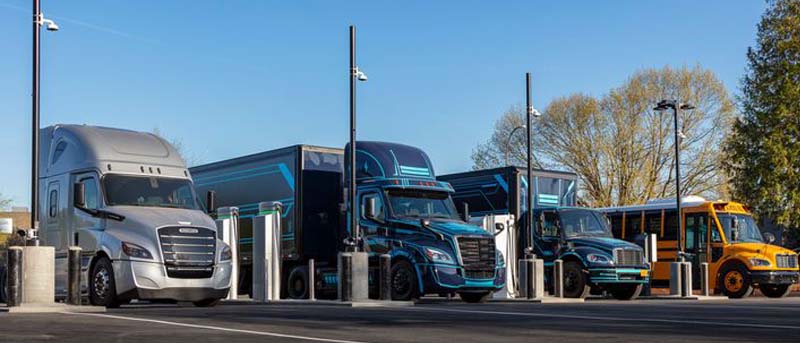What British Columbia speed limiter mandate means for you
Do you travel in or through British Columbia, Canada? There is now a speed limiter requirement affecting most heavy trucks, as of Friday April 5,
We are a team of DOT Compliance and Licensing Professionals helping trucking and transportation companies remain safe, compliant, and profitable.
CNS or Compliance Navigation Specialists is DOT Compliance company that assists trucking and transportation companies remain DOT Compliant. We are part of a network of companies, CNS Companies, specializing in services related to the transportation, manufacturing, construction, service, education and medical industries.

A full-scale DOT Compliance Program managing a long haul carrier’s safety, compliance, licensing and more.
Learn more >>>
A DOT Compliance Program that keeps motor carriers compliant with the 6 Basic DOT Regulations required of all carriers.
Learn more >>>
Our Short-Haul/Construction Program is a full-scale program designed for private carriers that do not haul for-hire.
Learn more >>>
Our most comprehensive DOT Compliance Program, operating as your company’s off-site Safety Director or assisting your current safety personnel.
Learn more >>>
Our Non-CDL Program is a full-scale program managing safety, compliance, licensing and more for moving companies, couriers, landscapers, or any company subject to DOT regulations and does not employ CDL drivers.
Learn more >>>
Our DOT Audit Services cover a number of different types of DOT Audits that new and existing carriers will be subject to.
Our DOT Driver Services help trucking companies and carriers to stay compliant as they grow and hire more drivers.
Our DOT Vehicle Services focus on ensuring your vehicles are compliant with DOT Regulations, which is just as important as your drivers.
Our DOT Services for Special Carriers focus on companies outside of the typical motor carrier, like HAZMAT, Passenger and Bus Carriers.
CNS is part of a group of companies that offer other necessary services for the trucking and transportation industry, such as Commercial Trucking Insurance, CDL Training, Online Training Course, and even Healthcare.
Our DOT Licensing Services will cover you whether you are an existing company or just starting a trucking company. Our DOT Licensing Specialists can help you get up and running and in days with your DOT number, MC Authority, EIN, UCR, IFTA, 2290 HVUT, Fuel Taxes and can even set you up to get your Commercial Driver's License (CDL) with CNS Driver Training Center.
Our DOT Licensing Specialists will help you with every aspect of starting a trucking company. All you need to do is choose a name for your trucking company.
You will need to ensure your DOT Number, MC Authority, Vehicle Registration, etc. is all set up properly when you start your trucking business.
Our Licensing Specialists can help with all aspects of filing and renewing licenses, fuel taxes, etc.
CNS is part of a group of companies that offer other necessary services for the trucking and transportation industry, such as Commercial Trucking Insurance, CDL Training, Online Training Course, and even Healthcare.
Do you travel in or through British Columbia, Canada? There is now a speed limiter requirement affecting most heavy trucks, as of Friday April 5,
CNS or Compliance Navigation Specialists is DOT Compliance company that assists trucking and transportation companies remain DOT Compliant. We are part of a network of companies, CNS Companies, specializing in services related to the transportation, manufacturing, construction, service, education and medical industries.
CNS Companies is a network of companies specializing in services related to the transportation, manufacturing, construction, service, education and medical industries. Our DOT Compliance division is handled by Compliance Navigation Specialists, CNS Insurance handles Commercial Truck Insurance, CDL training is managed by the CNS Driver Training Center and healthcare is managed by CNS Occupational Medicine.
We are a team of DOT Compliance and Licensing Professionals helping trucking and transportation companies remain safe, compliant, and profitable.
CNS or Compliance Navigation Specialists is DOT Compliance company that assists trucking and transportation companies remain DOT Compliant. We are part of a network of companies, CNS Companies, specializing in services related to the transportation, manufacturing, construction, service, education and medical industries.

A full-scale DOT Compliance Program managing a long haul carrier’s safety, compliance, licensing and more.
Learn more >>>
A DOT Compliance Program that keeps motor carriers compliant with the 6 Basic DOT Regulations required of all carriers.
Learn more >>>
Our Short-Haul/Construction Program is a full-scale program designed for private carriers that do not haul for-hire.
Learn more >>>
Our most comprehensive DOT Compliance Program, operating as your company’s off-site Safety Director or assisting your current safety personnel.
Learn more >>>
Our Non-CDL Program is a full-scale program managing safety, compliance, licensing and more for moving companies, couriers, landscapers, or any company subject to DOT regulations and does not employ CDL drivers.
Learn more >>>
Our DOT Audit Services cover a number of different types of DOT Audits that new and existing carriers will be subject to.
Our DOT Driver Services help trucking companies and carriers to stay compliant as they grow and hire more drivers.
Our DOT Vehicle Services focus on ensuring your vehicles are compliant with DOT Regulations, which is just as important as your drivers.
Our DOT Services for Special Carriers focus on companies outside of the typical motor carrier, like HAZMAT, Passenger and Bus Carriers.
CNS is part of a group of companies that offer other necessary services for the trucking and transportation industry, such as Commercial Trucking Insurance, CDL Training, Online Training Course, and even Healthcare.
Our DOT Licensing Services will cover you whether you are an existing company or just starting a trucking company. Our DOT Licensing Specialists can help you get up and running and in days with your DOT number, MC Authority, EIN, UCR, IFTA, 2290 HVUT, Fuel Taxes and can even set you up to get your Commercial Driver's License (CDL) with CNS Driver Training Center.
Our DOT Licensing Specialists will help you with every aspect of starting a trucking company. All you need to do is choose a name for your trucking company.
You will need to ensure your DOT Number, MC Authority, Vehicle Registration, etc. is all set up properly when you start your trucking business.
Our Licensing Specialists can help with all aspects of filing and renewing licenses, fuel taxes, etc.
CNS is part of a group of companies that offer other necessary services for the trucking and transportation industry, such as Commercial Trucking Insurance, CDL Training, Online Training Course, and even Healthcare.
Do you travel in or through British Columbia, Canada? There is now a speed limiter requirement affecting most heavy trucks, as of Friday April 5,
CNS or Compliance Navigation Specialists is DOT Compliance company that assists trucking and transportation companies remain DOT Compliant. We are part of a network of companies, CNS Companies, specializing in services related to the transportation, manufacturing, construction, service, education and medical industries.
CNS Companies is a network of companies specializing in services related to the transportation, manufacturing, construction, service, education and medical industries. Our DOT Compliance division is handled by Compliance Navigation Specialists, CNS Insurance handles Commercial Truck Insurance, CDL training is managed by the CNS Driver Training Center and healthcare is managed by CNS Occupational Medicine.

The charging station will allow both Portland General Electric and Daimler to study energy management, charger use and performance, and Daimler vehicles charging performance.
First announced in December 2020, “Electric Island” in Portland, Oregon represents the first location specifically designed for medium- and heavy-duty trucks and has eight vehicle charging stations for electric cars, buses, box vans and semi-trucks.
In collaboration with the West Coast Clean Transit Corridor Initiative (WCCTCI), with nine electric utilities and two government agencies, this is a part of the plan to electrify 1,300 miles of I-5 across the three West Coast states to provide publicly available charging for freight and delivery trucks.
Additional plans include on-site energy storage, solar power generation, and a product and technology showcase building. Electric Island aims to address the intersection of vehicles and the grid, creating new opportunities for future EV drivers and utility customers.
“In Oregon, we are committed to taking action to address climate change, and we know that the future of transportation is electric. Today, the charging station at Electric Island, the first known freight charging station on the I-5 corridor, shows that Oregon is the ideal place to innovate and develop 21st-Century transportation infrastructure,” said Oregon Governor Kate Brown. “Thanks to the partnership of Portland General Electric and Daimler Trucks North America, we are working together towards our goal of creating a West Coast Electric Highway.”
Read more: Electric and autonomous semi-trucks beyond 2020
Currently the highest power unit installed at the Swan Island charging site is 150 Kilowatts, but it can go up to 350 kilowatts.
To compare, Tesla Superchargers can deliver 72 kilowatts of power, even if another Tesla begins charging in an adjacent stall, with an average Supercharging session lasting around 45-50 minutes in city centers.
The station will eventually bring five megawatts of power from the grid with both 400-Volt and 800-Volt charging available, and some of the units will go to 1,000 volts.
Nate Hill, head of charging infrastructure for Daimler, said “this level of charging capability will be necessary to recharge the larger battery packs that are planned to power Daimler’s new line of Class 6/7 and Class 8 semi-trucks that will be produced here in Portland.”
Daimler plans to begin production of the eCascadia semi-truck in late 2022, and the eM2 box truck about six months later in 2023. With a range of 230-250 miles on a charge, both models are designed for urban and regional use, rather than cross-country applications.
Read More: Breaking Down Biden’s First Half $2.3T Infrastructure plan
At CNS, our DOT Compliance Programs focus on Proactive Safety Management (PSM),a mindset that will ensure your fleet’s safety and compliance is always in order and ahead of the FMCSA.
Our PSM Motor Carrier Program includes:

There is a shortage of commercial truck parking along major interstate corridors in Pennsylvania. Trucks parking on highway shoulders and ramps is common during overnight

Will a $3.6 Billion investment on Semi ever make the company money? In 2014, Tesla made a commitment to invest $3.5 billion in Nevada with

What if truckers were educated and equipped to spot and report potential signs of human trafficking to the National Hotline? January is National Human Trafficking

As we transition from a Republican agenda to a Democrat agenda with Biden coming into office, there is potential for substantial impact within the trucking
Our DOT Compliance Programs ensure it is your top priority and keeps your business running.
Receive the latest transportation and trucking industry information about FMCSA and DOT Audits, Regulations, etc.

There is a shortage of commercial truck parking along major interstate corridors in Pennsylvania. Trucks parking on highway shoulders and ramps is common during overnight

Will a $3.6 Billion investment on Semi ever make the company money? In 2014, Tesla made a commitment to invest $3.5 billion in Nevada with

What if truckers were educated and equipped to spot and report potential signs of human trafficking to the National Hotline? January is National Human Trafficking
Join our monthly newsletter and stay up-to-date on trucking industry news and receive important compliance and licensing tips.
Join our monthly newsletter and stay up-to-date on trucking industry news and receive important compliance and licensing tips.